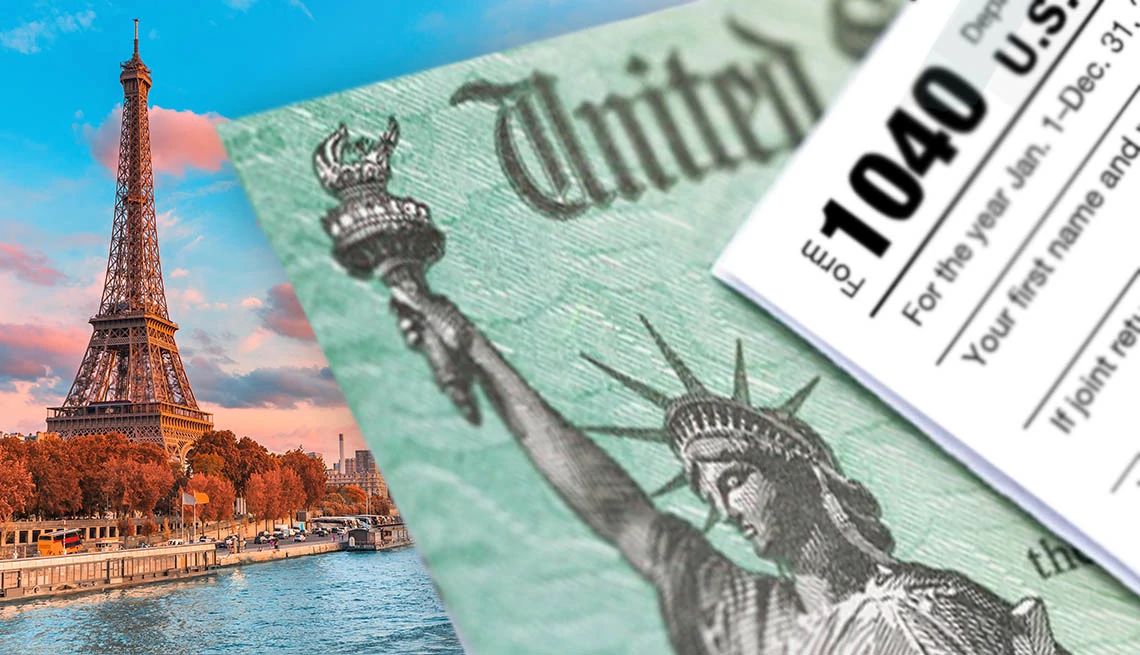AARP Hearing Center


Like many people nearing retirement, Lisa Hughes is thinking about moving somewhere new. But her prospects are a little unconventional.
The 65-year-old widow is interested in retiring to Portugal, a popular destination for older Americans. But she’s also considering Romania, or possibly Albania, and has contacted expat groups in several countries.
“A better cost of living, that’s my ultimate goal,” says Hughes, who plans to retire in 2025 from her job as a medical research associate in Houston.
She has plenty of company. More than 1 in 6 Americans ages 55 and older say they would like to move to another country, according to a February 2024 Monmouth University poll, a fourfold increase from 50 years ago.
The expat life can be cheap, says Tim Leffel, 60, a Virginia-born travel writer who has lived full time in Mexico since 2018.
“If you have savings in dollars and you’re moving somewhere where those dollars are worth a lot of money, you’re going to have a higher standard of living,” he says.
But the financial logistics can be complex. There are tax, banking and health care factors to consider. And while some countries are eager to welcome American retirees who are self-sufficient and don’t threaten to take local jobs, there’s a lot of red tape.
“The number one mistake is just assuming that your tax and financial situation will be the same when you move abroad as it is in the U.S. — that you’re going to move to Spain or Portugal or wherever, and the tax on your Social Security retirement income will be the same as it is in Utah,” says Alex Ingrim, a financial adviser based in Florence, Italy, whose practice focuses on Americans living in Europe. “That’s just not the case.”
Here are some key things to know about keeping your financial house in order when you make a new home abroad.
Banking and credit cards
Most debit and credit cards work abroad, but many charge fees for foreign transactions — typically 1 percent to 3 percent. You’ll want to have at least one card in your wallet that doesn’t. Shop carefully and read the fine print: Some cards that don’t charge for foreign transactions require hefty deposits in connected checking accounts or have high annual fees.
Ask your U.S. bank if it has a “correspondent bank” where you’re moving; these relationships can facilitate international transactions. You might also consider opening a checking account that doesn’t charge international ATM fees or waives out-of-network fees, such as Capital One 360, HSBC Premier Checking, or Wells Fargo’s Prime Checking and Premier Checking.
You typically must have a U.S. mailing address to maintain a U.S. bank or card account. (P.O. boxes don’t count.) That’s not an issue if you’re holding on to your home in the States; if you aren’t, see about using a family member’s address. Another option is a virtual mailbox, which, for a monthly fee, can serve as a U.S. address and provide services such as scanning and forwarding mail. Fees start at around $10 a month, with more expensive plans if you want to have multiple recipients or expect a heavy volume of mail.

































































More From AARP
9 Great Affordable Places to Retire Abroad
White-sand beaches, Old World cities and famed wine regions where you can live on the cheap
Prime Vacation Destinations for 2025
Experience history, culture, nature — and classic video games
What You Need to Know About Retiring in Latin America
How to get visas, health care and more in 8 countries